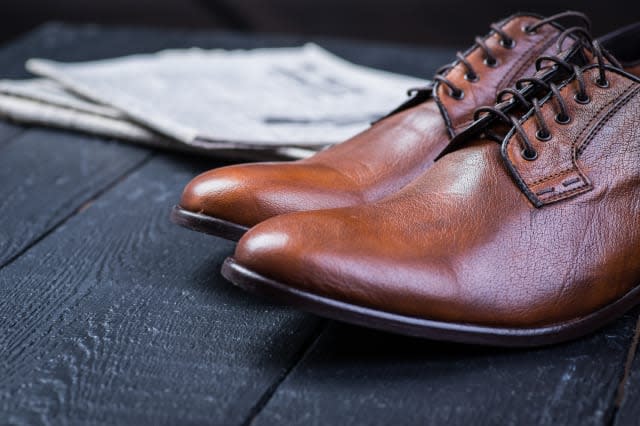What assumptions is your interviewer making about you?

It's a depressing fact that interviewers apparently make their mind up about candidates within six minutes of meeting them - and that first impressions matter even more than a candidate's education, professional qualifications or references.
However, it's not always clear just what assumptions are being made about us on the basis of our hairstyle, clothes or shoes. It's a fair bet that a facial tattoo will put you out of the running for a job as a corporate receptionist, for example, but what about more subtle aspects of your style?
Many recruiters admit to making assumptions about candidates - sometimes very cruel ones. We look at a few of the commoner prejudices.
Brown shoes
Nobody knows the origin of the phrase 'no brown in town', but it seems it still applies. A study by the government's social mobility commission recently found that candidates from less advantaged backgrounds were being discriminated against by investment banks.
And one of the clues that interviewers look for is shoe colour - with only black being acceptable with a suit.
"For men, the wearing of brown shoes with a business suit is generally, though not always, considered unacceptable by and for British bankers within the investment banking, corporate finance, division," read the report.
The wrong suit
You might think you've got it right with a dark suit, plain shirt and black shoes - but there's a right and a wrong way to wear that suit. Etiquette guide Debretts, for example, advises that the bottom button of a single-breasted waistcoat must always be left undone, and that a belt is never worn with a waistcoat or double-breasted suit. Your suit jacket should have three buttons on the cuff - never more or less.
Like the black shoes, the right suit is a subtle signal that interviewers in the finance industry look for to try and make sure you come from the right social bracket. You might want to consider whether you really want a job with an organisation like that.
Engagement rings
New York recruiter Bruce Hurwitz recently caused outrage when he suggested that women should ditch the engagement ring when they go for a job interview.
"When a man sees that ring he immediately assumes you are high maintenance," he writes. "When the woman at the office who has the largest diamond on her finger sees that ring, she will realise that if you are hired she will fall to second place and will, therefore, not like you. Lose the ring!"
The post has, unsurprisingly, been widely criticised, with Grace Killelea, founder and CEO of Half The Sky Women's Leadership Institute commenting that his advice was 'ridiculous' and 'makes women sound petty and small'. Other senior businesspeople have agreed.
It seems likely that Mr Hurwitz is simply describing his own prejudices - prejudices that may not be widely shared.
Tattoos
There's a big difference between the way people with tattoos see themselves and the way employers see them. While 8% of tattooed people think their ink makes them look more intelligent, a Harris poll found, 27% of people without tattoos think they make a person look less intelligent. People with tattoos are also perceived as less attractive and less healthy.
All in all, while a tattoo won't stop you getting a job altogether, it may make it harder to aim terribly high.
As Joanne Blake, president and owner of Canadian corporate image consulting firm Style for Success, says, "Despite how mainstream they are today, tattoos have historically become associated with prisoners, gang members, and other types of people who aren't upstanding citizens."
Beard
More than half of men in Europe now have a beard, says Braun - but they may be making it harder for themselves to get a job. Research from the Aziz Corporation has revealed that 40% of business directors believe beards can appear untidy. Bearded men are also perceived as being likely to put their home lives ahead of work.
Comments chairman Khalid Aziz, "Even if these are the only people who hold these prejudices, having a third of your potential customers see you as untidy should cause any businessman serious concern."
Weight
A survey last year revealed that an astonishing 50% of British companies are less likely to hire job applicants if they're overweight. Obese workers are perceived as 'lazy', 'unable to play a full role in the business', and 'unable to do the job required'.
The best answer is to dress as professionally as you can, keeping your outfit simple but smart - and make it clear through your interview that you're anything but lazy.




